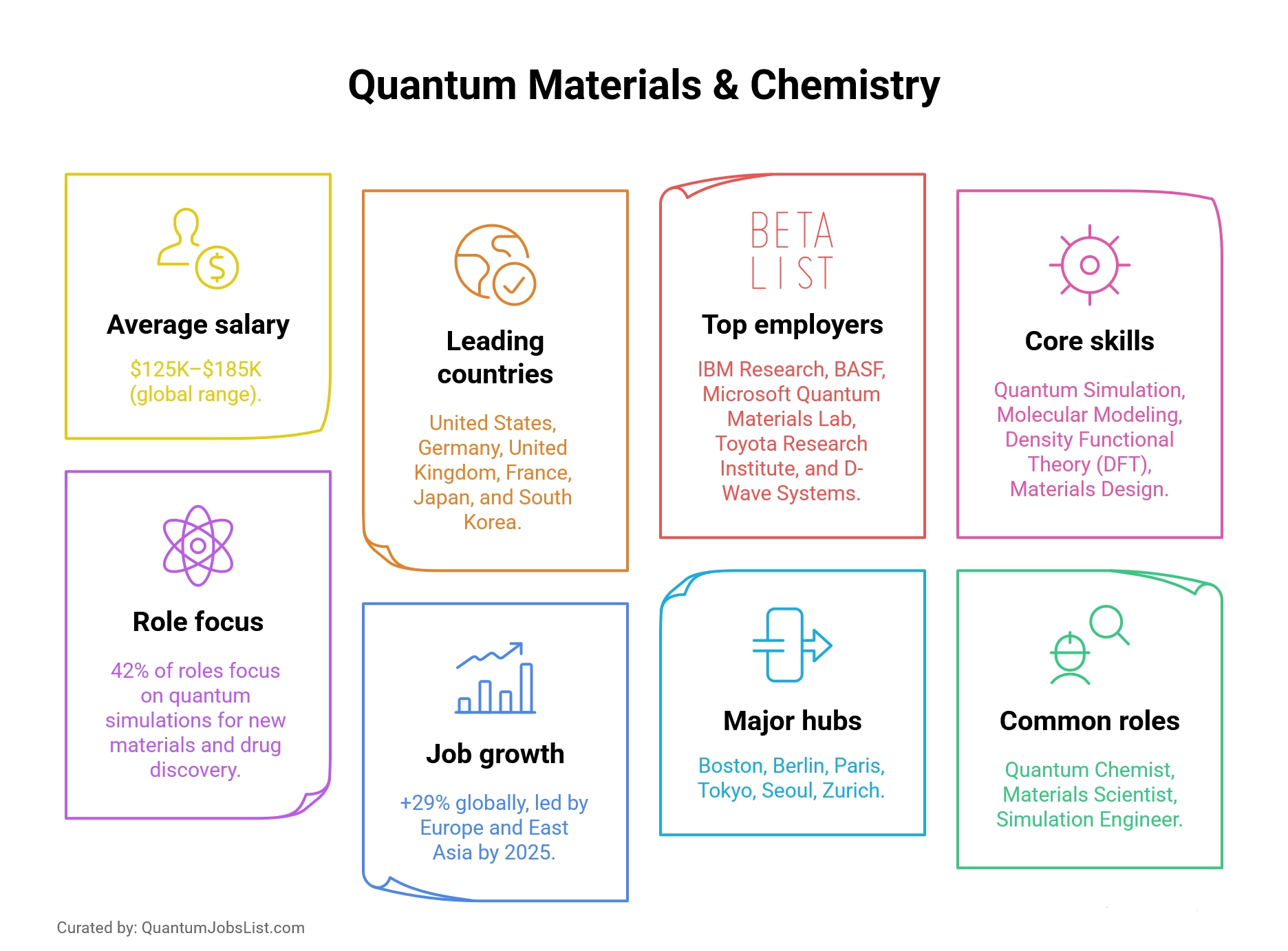Quantum Materials & Chemistry Jobs













































Search Quantum Industry Jobs
Know the Basics
Jobs where you discover and design new materials with special quantum properties or use quantum computers to simulate how molecules behave; helping create better drugs, batteries, and materials.
I will not endeavour to provide a precise definition of what a quantum material is, but I know one when I see it. Robert Cava, Materials Scientist
What does a quantum materials scientist do?
They study and create materials such as superconductors and quantum information storage materials and other materials with extraordinary quantum characteristics. Picture them as cooks trying to innovate their cooking techniques to come up with extraordinary cooking recipes. They devote their time to labs where they grow and examine crystals, study materials at frigid temperatures, and figure out the atomic arrangements responsible for the quantum phenomena at crafting labs.
Do I need a PhD for quantum materials jobs?
A quantum materials job requires at least a research master's degree in materials science, chemistry, or physics, while those seeking quantum materials PhDs will be hired. For positions that are not highly technical, a bachelor's degree will be accepted, but advanced positions will require a doctorate as the research tends to be more complex and involves greater specialization.
Suggested Read: Get Quantum Job without PhD.
What's the difference between quantum chemistry and regular chemistry?
Regular chemistry looks at how molecules react and behave using classical physics rules. Quantum chemistry, on the other hand, applies quantum mechanics to study the behavior and interactions of electrons at highly proximate ranges which in turn enables the prediction of a the course of a chemical reaction with greater accuracy. It is akin to the contrast of using a simple map to figure out a land topography, versus using satellite data to really understand the intricacies of the topography.
A single atom out of place could spell disaster. Andrew Houck, Professor of Electrical and Computer Engineering, Quantum Information Expert

How do quantum computers help with chemistry research?
Quantum computers use the principles of quantum mechanics to perform calculations much faster than traditional computers; They can simulate chemical interactions, helping chemists design new medicines, batteries and materials without endless lab tests. It is like having a cost and time saving crystal ball that predicts chemical outcomes before trying them in real life.
What industries hire quantum materials and chemistry professionals?
- Pharmaceutical companies: (designing new drugs using quantum simulations)
- Battery and energy companies: (creating better energy storage materials)
- Tech companies: (IBM, Google, Microsoft - building quantum computer components)
- Chemical manufacturers: (optimizing industrial chemical processes)
- National laboratories and universities: (conducting fundamental research)
What skills do I need for quantum chemistry jobs?
You need strong knowledge of chemistry fundamentals, an understanding of the principles of quantum mechanics, proficiency in the use of quantum chemistry software (such as Gaussian or Q-Chem for Windows), and the ability to code in Python or languages of a similar rank. You will need other lab skills too like the use of and the ability to perform laboratory analysis by spectroscopy, X-ray diffraction, and cryogenic systems. This is a mixture of theoretical knowledge, computer skills, and laboratory work.
Suggested Read: Qualification required for Quantum Jobs

.svg)

